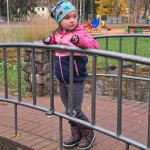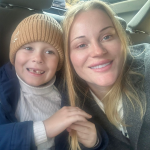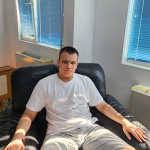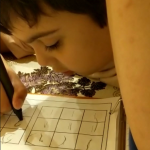If the First Child Has Autism, Will the Second?
Having one child with autism does increase the likelihood of a second child being diagnosed, but it does not guarantee it. Studies show that the risk of autism in siblings is higher than in the general population, with estimates suggesting that about 10-20% of siblings of a child with autism may also be diagnosed. However, autism is influenced by a combination of genetic and environmental factors, so while genetics play a role, other factors can also contribute.
It’s important to remember that every child is unique, and not all siblings will necessarily have autism, even if the first child does. If there are concerns, early screening and evaluations can help identify any developmental differences in the second child.
Here are a few key studies on this topic for further reading:
- The Early Autism Risk Longitudinal Study (EARLI)
This ongoing study investigates the genetic and environmental factors contributing to autism and has found that siblings of children with autism have an increased risk of developing the disorder themselves. Estimates suggest a 10-20% chance of a sibling being diagnosed, which is higher than the general population risk (about 1 in 54 children in the U.S.).
- A Study by the National Institute of Child Health and Human Development (NICHD)
In a study published in 2009, researchers found that siblings of children with autism had a higher likelihood of being diagnosed with autism spectrum disorder (ASD). The risk was higher for boys, with the study estimating that 18.7% of younger siblings of children with autism were also diagnosed.
- The Autism Speaks Study (2011)
Research from Autism Speaks suggests that the recurrence risk for autism in siblings varies, but it is generally estimated to be around 10%. The risk is higher if the first child has more severe autism symptoms or if there is a family history of autism or other developmental disorders.
- A Swedish Population-Based Study (2015)
A study published in JAMA Psychiatry found that the risk for autism in a second child was approximately 10% if the first child was diagnosed. This study used a large dataset from Sweden, which allowed for a more comprehensive analysis of sibling recurrence.
Autism Treatment Center Videos
Autism treatment with own stem cells
Cord blood association congress
International Quality Crown
Autism Treatment Reviews
Autism treatment with own stem cells
The story of Alessandro (6 years old)
Autism Patient Testimonial - Stem Cell Treatment
Clients Testimonials

Feedback from Yulia, mother of Emily (7 years old) Read More

Feedback by Everita, Katrina’s mother (5 years old) Read More

Feedback from Igor, David’s father (12 years old) Read More

Feedback from Olga, Fedya’s mother Read More

Feedback from Natalia, Radomir’s mother (15 years old) Read More












